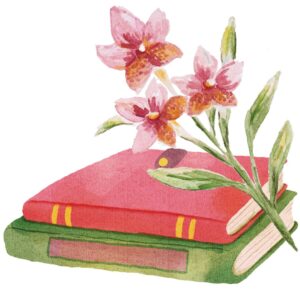People often use the terms “romance” and “love story” interchangeably, but there are some key differences.
Let’s define these terms.
Romance is a genre of fiction that focuses on, you guessed it, romantic relationships. These novels center around the development of romance and explore themes of love, trust, personal growth – yada yada yada.
Romance can be the defining genre of a novel, or it can be a subplot across genres. It might also share center stage with another genre (such is the case with Fantasy Romance, or Romantasy, as I prefer to call it).
A love story, on the other hand, is a broader term that refers to any story that focuses on the theme of love or relationships, happy or not. Love stories can take many forms across genres, but here’s the kicker: it doesn’t have to end happily.
According to the Romance Writers of America, a rule of the romance genre is that the story must end optimistically, and in their words, it should be “emotionally satisfying.” That means a happily-ever-after, folks. Or a happy-for-now at the least.
Love stories don’t have to abide by this rule.
Another difference between a romance and a love story is the way they portray love.
Romance novels often have a more traditional and idealized portrayal of love, with the emphasis on the actual romance, naturally (sometimes with a little spice to boot – *wink wink*). Think Book Lovers or The Hating Game.
Side note: This idealism is also why we use the word “romanticizing” when we describe something that is cast in an overly rosy light.
Love stories, on the other hand, can be more realistic and nuanced in their portrayal of love, exploring the complexities and challenges of relationships. Sometimes love stories end with a break-up, or just have a pretty rocky trajectory overall. Think The Seven Husbands of Evelyn Hugo.
Let’s be clear though: a love story that ends with a sudden character death is not a love story. That’s a tragedy. You just can’t go around calling Romeo and Juliet a love story, people – it’s labelled a tragedy for a reason.
Why does this matter?
Readers have preferences – when a writer or reviewer labels a book incorrectly, it can feel like a bait-and-switch. A reader went into the book for one type of story, only to be unpleasantly thrust into an entirely different one.
Using correct genres ensures that a book reaches the correct audience.
In conclusion, love stories don’t always look at romance through rose-colored glasses.
While both romance and love stories explore similar themes, there are some key differences between the two genres. Whether you’re a fan of traditional romance novels or more nuanced love stories, there’s something for everyone when it comes to stories about love.
Check out some of my other recent blogs:
- Listen for the Lie: Surprisingly engaging
- The Starving Saints: Excellent fantasy horror
- The Bog Wife: Finally, a 5-star read
- April memes
- The Rom-Commers: Mostly good









2 responses to “Romance Vs. Love Stories: What’s the difference? ”
In conclusion, there are 2 different terms because people are even elitist within the romance genre itself, so in order to differentiate yourself from disgusting icky romance, you call it a “love story” 💀
I can totally see that interpretation! Honestly, I think it’s mostly about marketing. Publishers are more focused on reaching their target audience, so having the distinction helps make sure the books are in front of the right people. Romance readers will expect a happily ever after, but that’s always not the case with love stories because those often fall under literary fiction (think Evelyn Hugo).